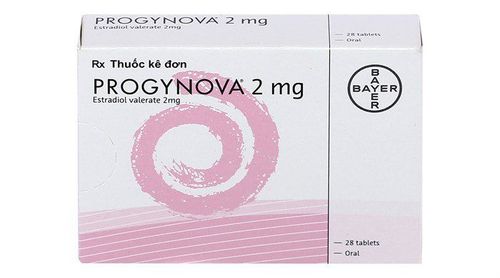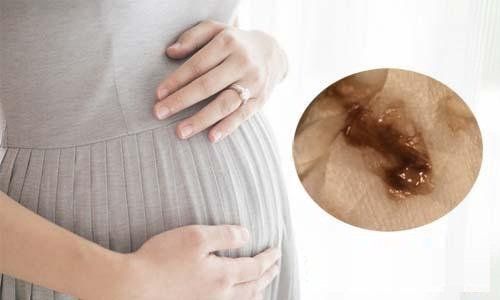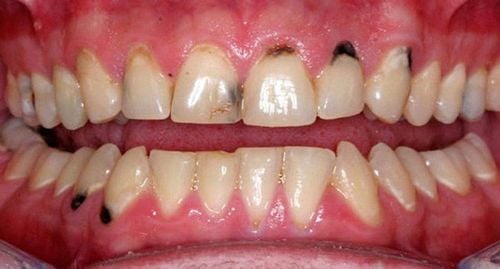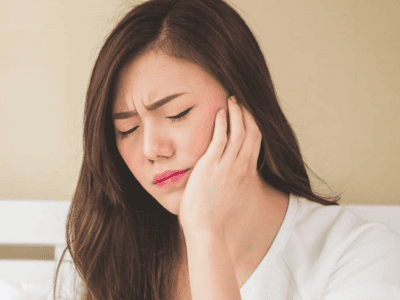Tooth sensitivity after giving birth is usually caused by a more sensitive body, a lack of calcium, or dental problems. Many simple home remedies can be applied For mild tooth sensitivity, simple home remedies can be helpful. However, women should visit a dentist for proper guidance and treatment.
1. Why Do Women Often Experience Tooth Sensitivity After Childbirth?
Tooth sensitivity after childbirth is a common discomfort for many mothers. The primary cause is that during pregnancy, the mother's body becomes highly sensitive and prone to deficiencies in trace elements, especially calcium, which can lead to tooth sensitivity.
Additionally, if the dentin is exposed, the teeth may directly come into contact with hard, hot, or acidic foods. Periodontal disease can also contribute to tooth sensitivity in postpartum women. The sensation of tooth sensitivity often appears and disappears within a few minutes, seemingly harmless but causing significant discomfort and impact.
2. How Does Tooth Sensitivity Impact New Mothers?
When hot foods cause discomfort, new mothers often switch to cold meals and drinks to ease the sensitivity. This affects their nutrition, as hot foods tend to retain the most nutrients.
Some mothers try various methods to eat without triggering tooth sensitivity, such as sipping hot milk in small amounts to alleviate the sensation or attempting to swallow food without letting it touch their teeth. However, these efforts often prove ineffective. As a result, they not only lose their appetite but also develop an aversion to eating, which affects their mood, the family atmosphere, and ultimately lowers their quality of life.

3. Treatment for Tooth Sensitivity After Childbirth
There are various methods to treat tooth sensitivity after childbirth. However, mothers should visit a dentist for professional guidance. Since the postpartum period is still sensitive and mothers are breastfeeding, any medical intervention may affect the baby's health, so caution is necessary.
3.1. Tips for Tooth Sensitivity After Childbirth
The first solution is to balance calcium levels by supplementing with the necessary nutrients. Consuming foods rich in calcium and vitamin C helps strengthen teeth, maintain blood vessel integrity, and prevent gum bleeding. Avoid extremely hot, cold, or sour foods to minimize tooth sensitivity.
Some mothers try different ways to eat without triggering tooth sensitivity, like sipping warm milk in small amounts...
Postpartum mothers can also try simple at-home remedies such as rubbing garlic on the teeth or chewing green tea leaves, which can be beneficial.
3.2. When to See a Dentist for Tooth Sensitivity?
However, if the above measures do not show significant improvement, it is necessary to visit a dentist for a thorough examination and precise treatment. Depending on the cause, the dentist will recommend the appropriate treatment for the mother's condition.
If the tooth's outer layer is worn and the dentin is exposed, a dentist might recommend a filling.
In cases of excessive enamel wear and severe sensitivity, remineralization may be recommended. This method alleviates tooth sensitivity by applying artificial enamel to the affected area.

If a tooth is decayed, the usual remedy is filling, which replaces the lost tooth tissue to protect the tooth and restore its aesthetics. In cases of severe decay that has reached the pulp, the dentist may perform a root canal treatment and cover the tooth with a crown. However, for postpartum women, the dentist must carefully consider the most appropriate treatment method.
Postpartum women are highly sensitive, so it is crucial to receive proper and effective treatment at reputable dental clinics. Currently, Vinmec International General Hospital offers high-quality dental services, with experienced doctors and specialists providing direct examination and treatment.
Please dial HOTLINE for more information or register for an appointment HERE. Download MyVinmec app to make appointments faster and to manage your bookings easily.













